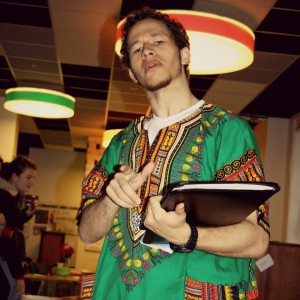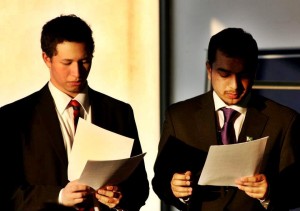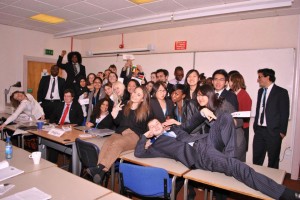The following guest article was provided by Omar Zaki, President of School of Oriental & African Studies (SOAS UK) MUN Society.
I have been involved in Model United Nations for four years, since Year 13 at school until now at my university. I was a part of a group of university students who developed our first MUN team and attended our first conference. Then in my second year of university I became President of the School of Oriental & African Studies MUN society. In total I have participated in nine conferences from which I won seven Best Delegate awards, one distinguished delegate award, and one Honorable mention. However those awards do not really matter that much to me, at times I thought other delegates deserved them more then I did. Truth of the matter is it was the immense enjoyment I received from debating in sessions, lobbying in committees & drafting resolutions on topics that meant the most to me. It is my pleasure to share the skills I have learned from my experiences with this growing community.
“More than ever before in human history, we share a common destiny. We can master it only if we face it together. And that, my friends, is why we have the United Nations.” Kofi Annan
The skills that I would stress most are the ability to develop a widespread & general knowledge of current affairs, politics & history of certain regions of interest to you. One must consistently be reading international news. For instance could you give five latest incidents in the Republic of the Sudan right now? Or something related to the Central African Republic (one the most unreported countries in the world) Or could you explain briefly the relations between DPRK and Pakistan? Or the importance of Venezuela to Latin American states? I feel delegates rely far too much on the information packs provided to them by their chairs, which though are useful only provide a brief analysis of the topics. Some delegates only begin researching on the day of the conferences; they don’t conduct enough research in advance or read up on the history and relations of the nations related to the topics. This is essential as it allows delegates to better represent their states and not express views which conflict with the actual policies of the state their representing. For instance when I was representing Mali in SPECPOL in London International MUN (2010) the topic was ‘Implications of the South Sudanese referendum’, the delegate of Turkey in response to my speech which stressed the importance of respecting reservations from the Sudanese government, condemned Omar Al-Bashir (President of Sudan). The delegate failed his task of representing Turkey because he should have known that Turkey & Sudan maintain good relations & Prime Minister Recap Tayyib Erdogen defended Bashir against the ICC arrest warrants.
Another skill I would suggest is for delegates to mentally prepare themselves for representing their appointed nations; you must represent that nation as if it were your own. Regardless of the common advice about remaining diplomatic, calm & collect with a poker face, you must make things personal for it adds that greater emotion and dedication in your speeches. When I represented the Peoples Republic of China in Abu Dhabi MUN (2010) I was Chinese and even brought with me a copy of Mao’s Little Red Book. When I represented the USA in London Metropolitan University MUN (2011), I was American. When I represented Palestine in Queen Mary MUN I was Palestinian (2012). You must become that which you represent but don’t forget, despite the handshakes & respectful exchanges when you are in session – as Dan Akroyd put it in ‘Trading Places’ (1983) – its ‘kill or be killed’.
Model United Nations enabled me to better appreciate the organisation that is the United Nations that much more. Prior to my MUN experience, I was extremely sceptical of its progress and impact on the world. For example, its failure to intervene in the Rwandan genocide in 1994. Its sanctions on Iraq after the first Gulf War which contributed to the deaths of 500,000 Iraqi children. Its failure to prevent the US & UK from invading Iraq despite its action being recognized as illegal by Secretary-General Kofi Annan himself. However despite these

Omar is currently serving the SOAS Student Union as their Union Secretary and also writes for Think Africa Press.
examples I became more open minded of the UN and many positive impacts it has had, including the 64 peacekeeping missions which have been conducted in the UN’s history, many of which have helped to maintain peace in my home country Sudan. Also the positive aspects of the UN including the millions of dollars of aid provided by UN agencies such as UNICEF & WFP, or the 510 multilateral treaties on human rights, terrorism, global crime, refugees, disarmament, etc, which impacts us all as a global community. Also, the protection of heritage & cultural sites by UNESCO. Through MUN I fully saw the UN and the great service it provides for humanity. MUN allows us to appreciate that we live in a complex and multi-dimensional world and that at times we must set aside our political, social, ethnic & religious differences for the sake of peace, stability and cooperation. MUN causes us to challenge our past perceptions and strengthen our new ones.



